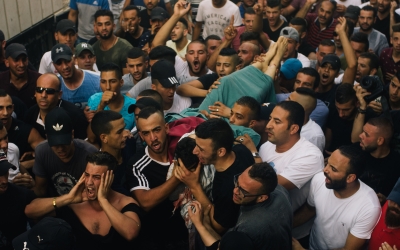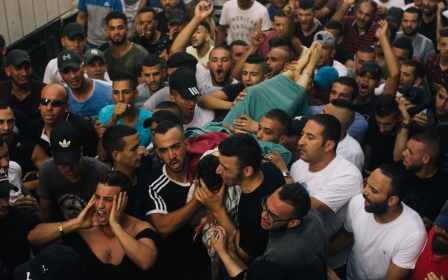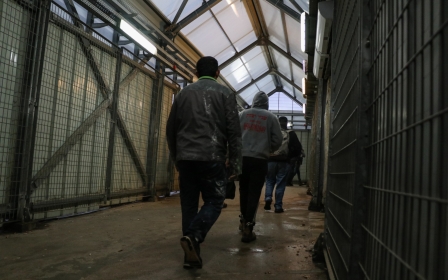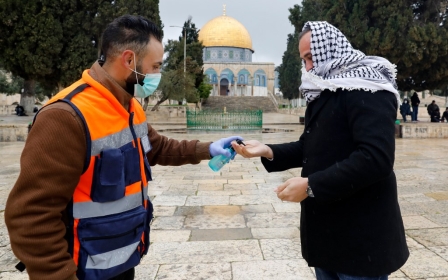'We lost him': West Bank village in shock as Israeli army kills Palestinian
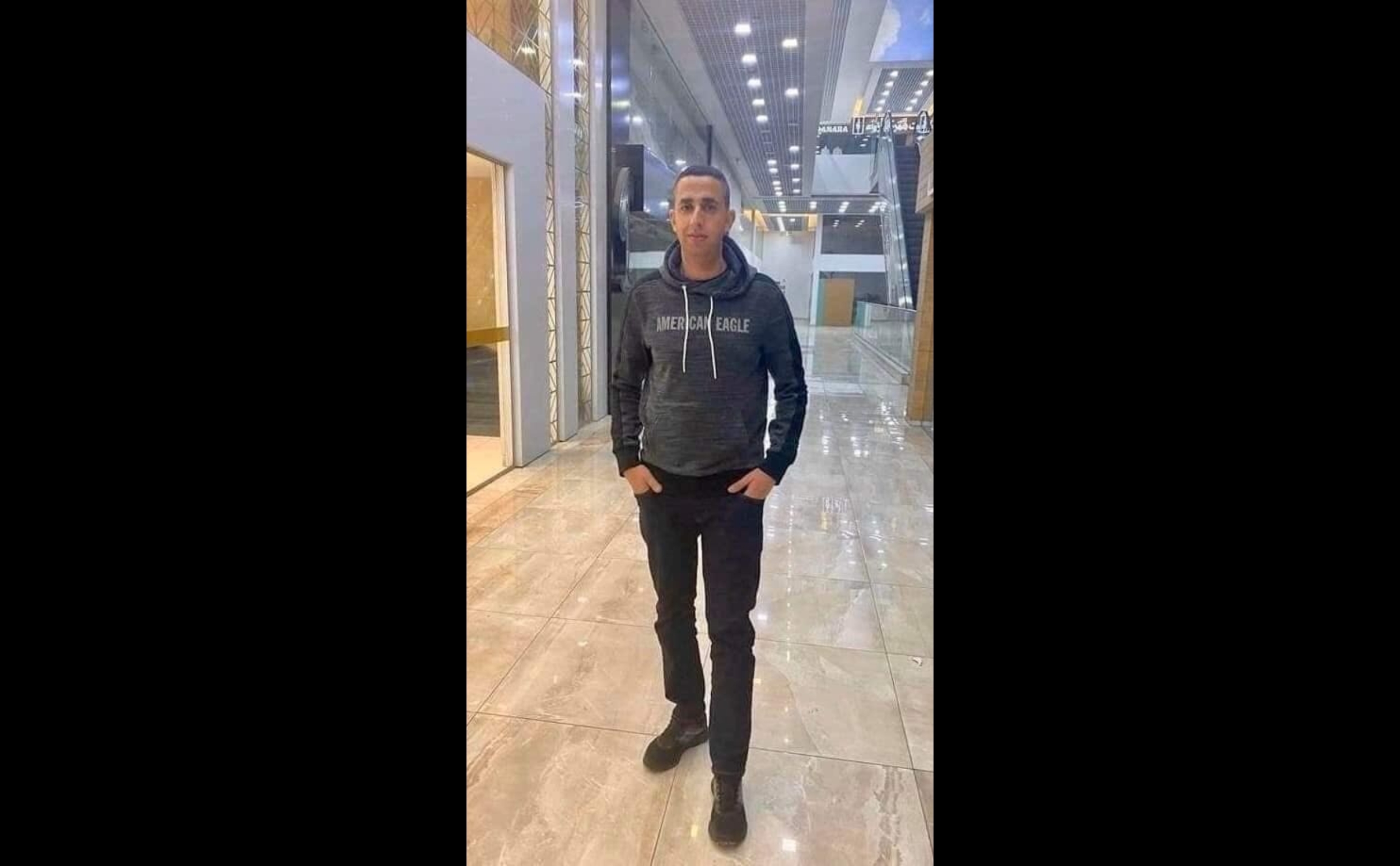
Israeli forces shot and killed a Palestinian man and injured another late on Sunday evening in the occupied West Bank.
The Israeli army confirmed that soldiers had shot Sufyan Nawwaf al-Khawaja, 32, in the head as he drove through the village of Nilin, in the central West Bank district of Ramallah.
The army added that Khawaja’s body was taken from the scene.
Nawwaf Khawaja, the slain man’s father, told news outlets that Israeli authorities had informed him they would withhold his son's body - in line with a much decried Israeli policy regularly carried out with killed Palestinians.
Nawwaf told journalists that Khawaja had been sitting with relatives making jokes before he left to go to his car.
"Sufyan went out to buy some basic supplies after the Palestinian government announced the imposition of the curfew”, Nawwaf said, referring to measures brought in to curb the spread of the coronavirus pandemic.
It was on this errand run that Khawaja drove from his family home in the centre of Nilin towards the al-Muhallal neighbourhood, which is near an Israeli road leading to the illegal settlement of Nili.
It was near the settler road - use of which is reserved exclusively for Israelis - that Khawaja was killed, Ahed al-Khawaja, a relative, told Middle East Eye.
"His mother collapsed and her health condition has deteriorated after being informed of Sufyan’s death”, Ahed said. “The whole family is in a state of shock and sadness."
Ahed described Khawaja as a sociable young man who was well-known and liked in Nilin, where he ran as a candidate for the municipal council a few years back.
Khawaja, Ahed said, was one of nine siblings, and worked in car repairs.
“Sufyan was always helping everyone and standing besides the weak and needy,” he said. “Today all the people of Nilin lost him.”
Nilin is well known for regularly staging demonstrations against the Israeli occupation. Surrounded by four settlements and cut off from thousands of hectares of its lands by the illegal separation barrier, the village of 5,000 inhabitants is cut in two by the Nili settler road, which separates some neighbourhoods from the village centre.
Nilin Mayor Imad al-Khawaja told MEE that settlements’ close proximity to the village, coupled with the presence of several Israeli military watchtowers regularly turned the area into a “frontline” with the army.
Israeli forces, he said, regularly shoot towards Palestinian residents of the area, claiming to protect settlers.
On Sunday, the Israeli army shared a photograph showing stones on an Israeli vehicle, and claimed that Sufyan al-Khawaja had thrown them, prompting them to track him down and shoot him.
But for Imad al-Khawaja, the Palestinian’s death comes within a context of heightened Palestinian Authority (PA) security presence in Nilin.
Because of the coronavirus pandemic, Nilin has been under a state of emergency for four days, in an effort to curb the spread of the disease by limiting residents’ movements. PA forces have been deployed at the entrances of the village and have prevented Israeli settlers from accessing a nearby industrial zone.
"The Israeli army didn’t like our attempt to impose control on the town to prevent the spread of the coronavirus,” Imad al-Khawaja said. “So they deployed troops from their side and started provocations, the latest of which was killing Sufyan and wounding another young man.”
While the PA has condemned Khawaja’s killing and said it would refer the case to international legal bodies, his family remains in shock.
"Sufyan was planning to get married and start a family,” Nawwaf Khawaja said of his son. “The occupation put an end to his simple dreams. It destroyed them all."
Middle East Eye delivers independent and unrivalled coverage and analysis of the Middle East, North Africa and beyond. To learn more about republishing this content and the associated fees, please fill out this form. More about MEE can be found here.


